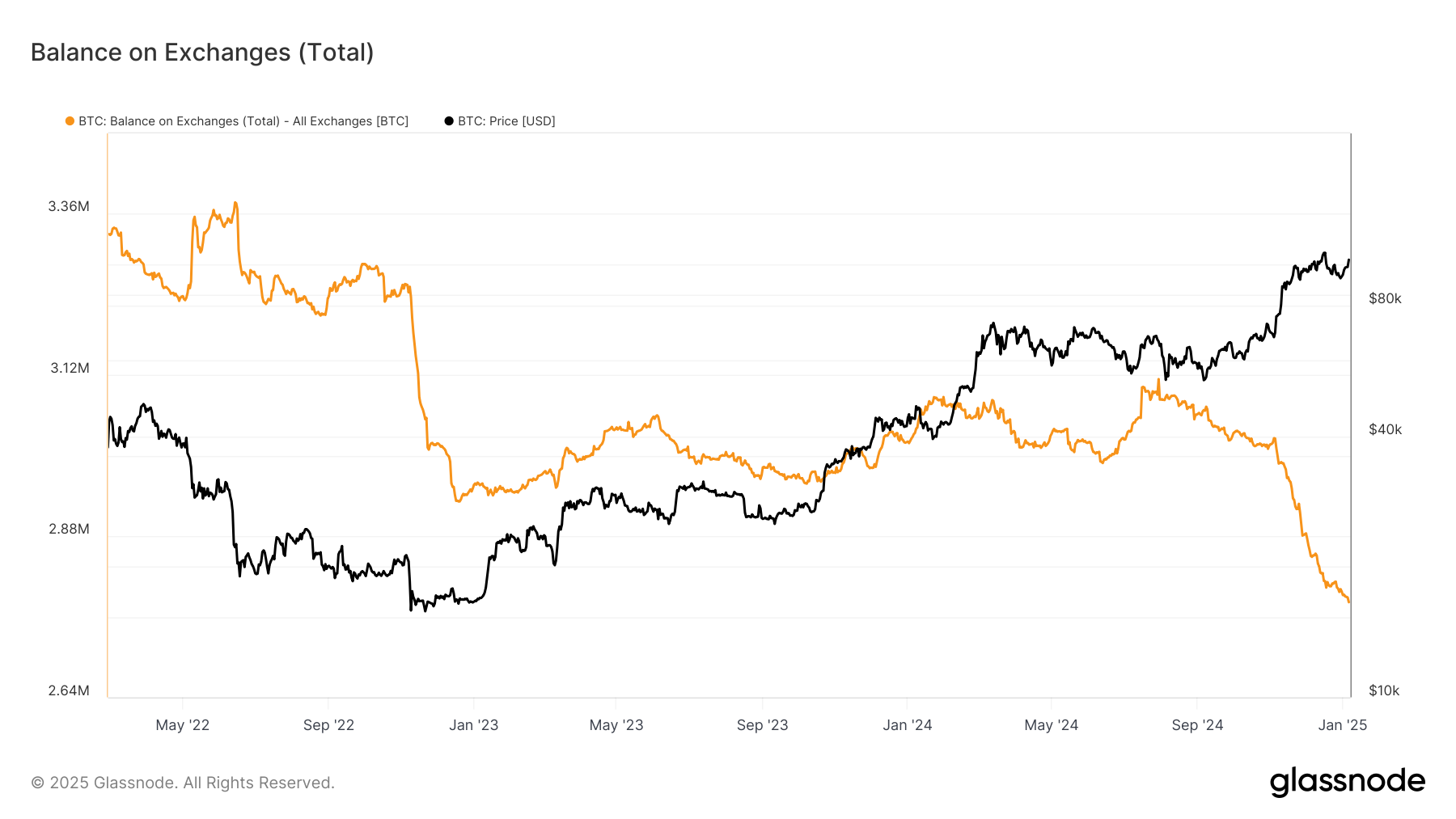Uncategorized
Correlation Between Bitcoin and U.S. Stocks Reemerges: Van Straten

Since the November 5 election of Donald Trump to the U.S. presidency, bitcoin (BTC) is up around 47%, sharply outperforming the S&P 500’s 4% advance.
The incoming president, of course, has made clear his friendliness towards bitcoin and crypto. Also worth consideration is the Republican sweep of the Senate and House of Representatives, where laws that might affect crypto will ultimately be passed.
Andre Dragosch, Head of Research at Bitwise in Europe, spoke exclusively with CoinDesk about other factors affecting the divergence between bitcoin and stocks.
«My view on bitcoin versus S&P 500 is that the stock market has been negatively affected by the Fed’s hawkish rate cut in December,» said Dragosch. «The Fed revised its planned rate cuts for 2025 to 2 rate cuts only, less than previously telegraphed and also less than previously anticipated by traditional financial markets».
At the same time, the DXY index, which measures the value of the U.S. dollar against a basket of the major currencies, is up 5%, putting further pressure on risk assets. That might typically include a hurt on bitcoin, but Dragosch explains that it held up relatively well thanks to other factors, the ongoing bitcoin supply deficit on exchanges being among them. «Bitcoin exchange balances have continued to drift lower despite profit-taking,» he continued.

Of late though, bitcoin and the S&P 500 have again begun moving closely together, their correlation hitting 0.88 (with 0 being no correlation and 1 begin absolute correlation) over the most recent 20-day moving average.
«While on-chain factors will likely provide a significant tailwind at least until mid-2025, the deterioration in the macro picture could pose short-term risks for bitcoin as well, especially on account of the still relatively high correlation with the S&P 500,» Dragosch concluded.
Uncategorized
Elon Musk vs. the regulators
Welcome back to TechCrunch Mobility, your hub for all things “future of transportation.”
Uncategorized
Nvidia’s AI empire: A look at its top startup investments
Over the last two years, Nvidia has used its ballooning fortunes to invest in over 100 AI startups. Here are the giant semiconductor’s largest investments.
Uncategorized
Dating app Cerca will show how Gen Z really dates at TechCrunch Disrupt 2025
Cerca is a dating app that sets users up with mutual friends.
-

 Business12 месяцев ago
Business12 месяцев ago3 Ways to make your business presentation more relatable
-

 Fashion12 месяцев ago
Fashion12 месяцев agoAccording to Dior Couture, this taboo fashion accessory is back
-

 Entertainment12 месяцев ago
Entertainment12 месяцев ago10 Artists who retired from music and made a comeback
-

 Entertainment12 месяцев ago
Entertainment12 месяцев ago\’Better Call Saul\’ has been renewed for a fourth season
-

 Entertainment12 месяцев ago
Entertainment12 месяцев agoNew Season 8 Walking Dead trailer flashes forward in time
-

 Business12 месяцев ago
Business12 месяцев ago15 Habits that could be hurting your business relationships
-

 Entertainment12 месяцев ago
Entertainment12 месяцев agoMeet Superman\’s grandfather in new trailer for Krypton
-

 Entertainment12 месяцев ago
Entertainment12 месяцев agoDisney\’s live-action Aladdin finally finds its stars


